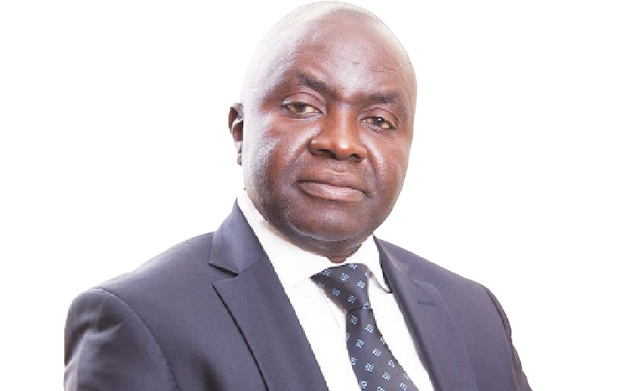Business
CPPE decries volatility of Customs duty exchange rate

The Center for Promotion of Private Enterprises (CPPE) has decried the volatility and frequent movement of the Nigeria Customs Service (NCS) duty exchange rates.
The Service had earlier on Wednesday adjusted the foreign exchange (FX) rate for import duties to N1, 373.64 per dollar.
This represents a 19.4 percent increase compared to N1, 150.1/$ announced by the service on April 24.
The Chief Executive Officer of CPPE, Dr. Muda Yusuf, who reacted to the development in a statement, urged the Central Bank of Nigeria (CBN) to adopt a framework to minimize volatility in the Customs duty exchange rate in line with the commitment of the present administration to bolster investors’ confidence and drive economic growth.
He argued that such a framework should adopt a quarterly Customs duty exchange rate after due consultation with the fiscal authorities.
Yusuf said: “The frequent changes in the customs duty exchange rate have become a huge burden on the business community. This has led to high volatility in cargo clearing costs, worsening inflationary pressures, and aggravating investment risk, especially in the real sector of the economy.
“These frequent changes are profoundly detrimental to production, planning and other real sector activities in the Nigerian economy.”
READ ALSO: ‘Again, CBN raises Customs duty rate to N1,605.82/$1 as Obi warns importers may shun Nigerian ports
He noted that there were at least 28 changes in the Customs duty exchange rate in the first quarter of this year alone.
The CPPE boss added: “As of 1st May 2024, the rate has jumped to N1373.65/$. It was less than N1200/$ a few days before. It is extremely difficult for investors to plan under these unstable circumstances. The situation has introduced an unprecedented level of uncertainty and unpredictability to the international trade dynamics. Investment risk has become elevated, planning has become difficult, risk management has become challenging and investors’ confidence is being weakened.
“It is double whammy for investors to grapple with volatility in the foreign exchange market and contend, concurrently, with a high level of unpredictability in the international trade ecosystem. This is not consistent with our growth aspirations at this time.”
He urged the government to adopt N1000/$1 as the Custom duty exchange rate to boost investor’s confidence.
“The Centre for the Promotion of Private Enterprise [CPPE] appeals to the CBN to adopt a framework to minimize volatility in the customs duty exchange rate in line with the commitment of the present administration to bolster investors’ confidence and drive economic growth.
“We propose a commencement rate of N1000/$ customs duty exchange rate. Consultation with the fiscal authorities is imperative because of the trade policy implications of such decisions. It is also consistent with the commitment of the present administration to effective coordination between fiscal and monetary authorities,” Yusuf concluded.
Earlier, the former President of the National Association of Government Approved Freight Forwarders (NAGAFF), Dr. Eugene Nweke, lamented that the CBN resorted to easy-fix applications by using the Customs platform as a quasi-exchange market portal.
In a statement titled “RE: CBN Policy On Import Duty A, Professional Expression,” made available to Ripples Nigeria, Nweke called for deliberate efforts that would aid the growth of the country’s economy.
He said: “How do one reconcile the fact that in the parallel (black) market, mallams are selling and buying dollars at a particular rate, meanwhile, the official exchange rate on the customs portal for payable import duty calculation is higher.
“The implication is that, while it is assumed that the naira is gradually gaining supremacy over the dollar, the reality is that, such gains do not reflect in the prices of products in the market because, the imports value and clearing cost out of the port exacerbate (promote) inflation, while other factors that promotes capital flight in the supply chain are still even.
“When you take a closer look at some African ports, many are reducing cargo handling charges in response to this directive. It can’t be the same here, for the reasons which all of us know, which is, the foreign exchange rate is affecting the cost of terminal operational and berth production capacity, which the operators have to grapple with daily.”
By: Babajide Okeowo
Join the conversation
Support Ripples Nigeria, hold up solutions journalism
Balanced, fearless journalism driven by data comes at huge financial costs.
As a media platform, we hold leadership accountable and will not trade the right to press freedom and free speech for a piece of cake.
If you like what we do, and are ready to uphold solutions journalism, kindly donate to the Ripples Nigeria cause.
Your support would help to ensure that citizens and institutions continue to have free access to credible and reliable information for societal development.






















